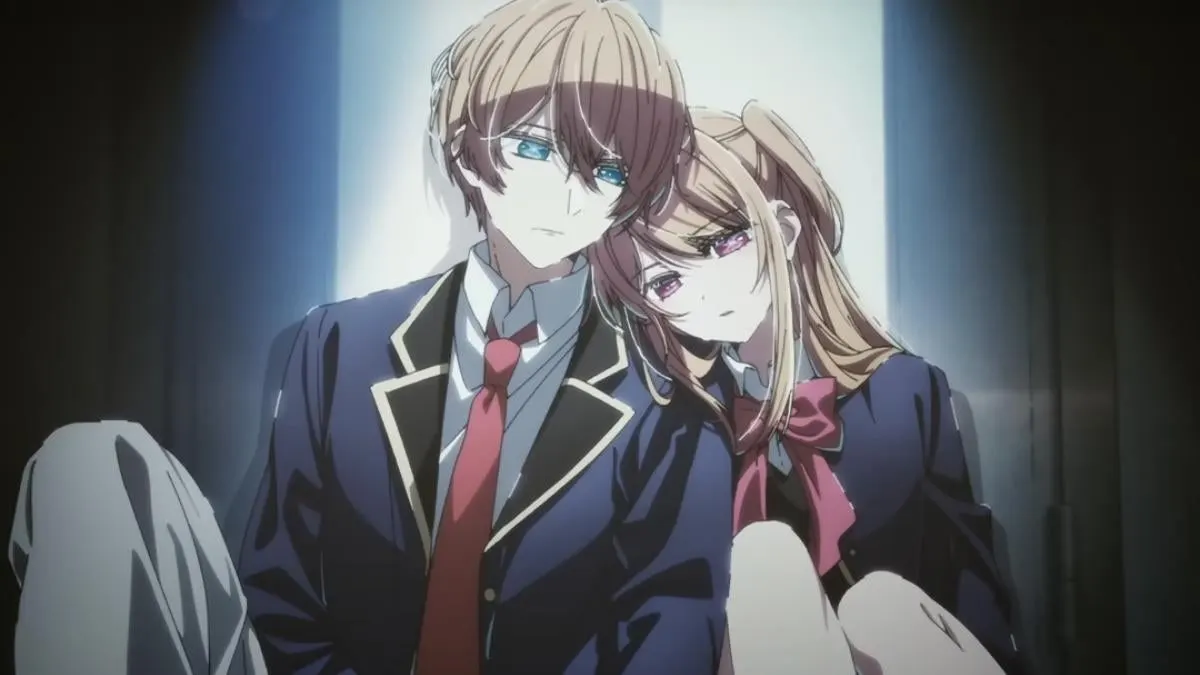February 6, 2025 12:43 pm
The most popular idol series failed to maintain the level of the first season.
The first season of Oshi no Ko was charged with a drum solo almost from the beginning: exploitation, loss, revenge, psychological trauma, father's sins, toxic fandoms and other shades of show business replaced each other at a frenetic pace.
The scriptwriters allowed the plot to pause for a bit of everyday life, during which a premonition of future twists blossomed. And the setting of a mystical near-detective hid the dramatic seams with the help of reincarnation and sparks in the eyes of idols.
After the high rhythm of the exposition, where we got to know the main characters, the transition to a slower pace in the second season was expected.
Endlessly forcing the rhythm is not only labor-intensive, but also harmful for dramatic accents. And even with such introductions, the repetitive continuation turns out to be a surprise.
What Is Oshi no Ko Season 2 About?
Life in the Hoshino family continues as usual. Aqua continues to take circuitous paths to revenge, participating in a theatrical production while collecting DNA from anyone who might lead to her father's identity.
Ruby is immersed in the activities of the idol trio B-Komachi. Surrounded by pleasant chores, emotional turmoil and love triangles, the duo, reincarnated as teenagers, have no idea that darkness is gathering nearby.
For Almost the Entire Season 2, the Action Is at a Standstill
Now, not only the actresses Kana Arima and Akane Kurokawa, who are in love with Aqua, but also the rest of the cast of the play are in the spotlight. They are revealed from all sides, from their attitude to the craft to their personal qualities outside of the dressing room.
Flashbacks also appear here, reinforcing the material covered in the spirit of full-blooded recaps. For a good ten episodes, Oshi no Ko marks time, and the characters masterfully reproduce the same lines, poses, and eye expressions.
In the first season, such details worked for the characters and helped hold the plot structure together. In the second, they become additional barriers to development, slowing down the narrative.
Only in the Last Episodes Does the Action Begin, but It's Too Late
It's as if someone paused the story and pressed play for the last three episodes. These episodes raise the stakes, mercilessly squeeze the characters with a vice, thicken the gloom of mysticism.
It's too late: the sinister strangers and the stars that blacken the eyes no longer disturb the heart. The magic has vanished, as have the illusions of warmth and love in the idol industry.
The most popular idol series failed to maintain the level of the first season.
The first season of Oshi no Ko was charged with a drum solo almost from the beginning: exploitation, loss, revenge, psychological trauma, father's sins, toxic fandoms and other shades of show business replaced each other at a frenetic pace.
The scriptwriters allowed the plot to pause for a bit of everyday life, during which a premonition of future twists blossomed. And the setting of a mystical near-detective hid the dramatic seams with the help of reincarnation and sparks in the eyes of idols.
After the high rhythm of the exposition, where we got to know the main characters, the transition to a slower pace in the second season was expected.
Endlessly forcing the rhythm is not only labor-intensive, but also harmful for dramatic accents. And even with such introductions, the repetitive continuation turns out to be a surprise.
What Is Oshi no Ko Season 2 About?
Life in the Hoshino family continues as usual. Aqua continues to take circuitous paths to revenge, participating in a theatrical production while collecting DNA from anyone who might lead to her father's identity.
Ruby is immersed in the activities of the idol trio B-Komachi. Surrounded by pleasant chores, emotional turmoil and love triangles, the duo, reincarnated as teenagers, have no idea that darkness is gathering nearby.
For Almost the Entire Season 2, the Action Is at a Standstill
Now, not only the actresses Kana Arima and Akane Kurokawa, who are in love with Aqua, but also the rest of the cast of the play are in the spotlight. They are revealed from all sides, from their attitude to the craft to their personal qualities outside of the dressing room.
Flashbacks also appear here, reinforcing the material covered in the spirit of full-blooded recaps. For a good ten episodes, Oshi no Ko marks time, and the characters masterfully reproduce the same lines, poses, and eye expressions.
In the first season, such details worked for the characters and helped hold the plot structure together. In the second, they become additional barriers to development, slowing down the narrative.
Only in the Last Episodes Does the Action Begin, but It's Too Late
It's as if someone paused the story and pressed play for the last three episodes. These episodes raise the stakes, mercilessly squeeze the characters with a vice, thicken the gloom of mysticism.
It's too late: the sinister strangers and the stars that blacken the eyes no longer disturb the heart. The magic has vanished, as have the illusions of warmth and love in the idol industry.

